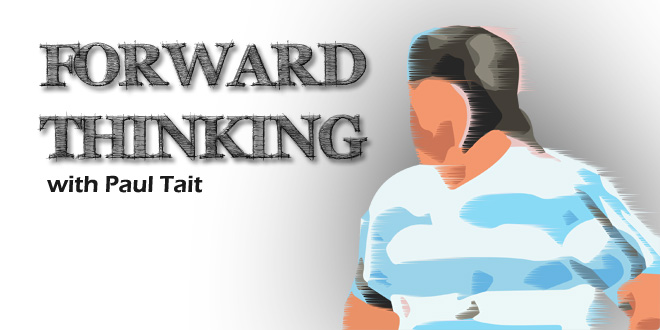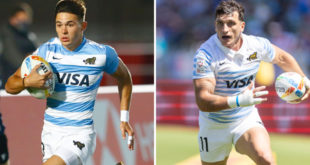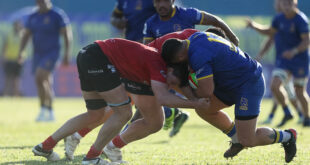Rugby World Cup 2015 is almost here. The opening fixture of England v Fiji is just 53 days away. It will begin a long tournament played from September 18 to October 31 which the organizers claim as being the biggest sporting event of 2015 and the third biggest of all behind the FIFA World Cup and Olympic Games.
Also listed on rugbyworldcup.com is a cumulative TV audience of 4 billion for this year’s event. The numbers as told by officials are a PR exercise to help promote the event and there is no denying that knowing exactly how many people will watch matches is not possible.
The competing teams are to come from the world over – two from Africa, one from Asia, eight from Europe, two from North America, five from Oceania and two from South America. Of them the Quarter Finalists are expected to have at least one from each of Africa, Europe, Oceania and South America.
Compared to other sports it is a solid distribution. The biggest of them all, soccer had fewer in 2014 with Europe, South America and North America represented in the final eight. In 2010 it was the same with Africa having one team in place of North America (Ghana instead of Costa Rica). There were two continents in the 1994, 1998 and 2006 Quarter Finals and three in 1986 and 1990 while prior to 1986 there were no Quarter Finals.
The one exception being 2002 when Senegal, South Korea, Turkey and the USA were all in the final eight, but even then Turkey plays in Europe not Asia. Rugby has done better overall with 1987 being the only time in which the final eight were from two continents. Crucially, the same four who I predict to have teams in the Quarter finals this year all did in 1999, 2007 and 2011.
The point in all this is that rugby is global in the sense that top teams do indeed come from the world over. No continent lacks a team that is not capable of at least two wins at this year’s World Cup. On their day the USA is certainly capable of defeating both Japan and Samoa while Japan could also win the same fixtures.
Title contenders can be debated but, for the sake of argument, one can assume that based on the pools and probable Quarter Finals teams from the same four continents could, realistically, make the final four. It would take a risky gambler to bet against Argentina or South Africa making the final eight.
The two are valuable members of the global game and are notably better than countries from their respective continents. There is a crucial difference though and it is not ability on the field or history but rather language. It is what sets them apart.
Although South Africa has eleven languages it is English which is the standard language and it also happens to be the language used for refereeing rugby in the country. When South Africa plays Argentina it is in English as is the case for all Springboks tests. Conversely Argentina’s games vs Paraguay and Uruguay earlier this year were in Spanish.
Indeed all South American matches are in Spanish, including games featuring the Portuguese speaking Brazil. Argentine Federico Anselmi did so for Paraguay vs Brazil in 2013 in Spanish yet controlled Canada vs Tonga this past Friday in English. Notwithstanding All Blacks, Wallabies and Springboks do not speak Spanish but most Pumas speak English fluently.
Most, but not all. Captain Agustín Creevy, for instance, prefers to have an interpreter for interviews. The same is true of Japan while Italian Sergio Parisse speaks native Spanish and is fluent in both French and Italian and English is a clear fourth. He can express himself but those who follow Stade Français know his French interviews are significantly more detailed and therefore superior.
Georgian and Romanian players, like Parisse, have a greater ease with French and many more play in France than in English speaking countries. Creevy played in France long before he did in England and in France it is French used for the purposes of officiating. Yet when French clubs play European Championship or Challenge Cup matches the assigned referee officiates in English.
A recent case in point being the 2015 European club final was between Toulon v Clermont which had a Welshman, Nigel Owens officiating. Of the eight props involved five were French, two were Georgian and one was a New Zealander. Carl Hayman was alone in being a native English speaker, why then was a non-French speaker in charge?
Was it because Owens is the best referee? Perhaps.
Was it because he was the best man for the job? Absolutely not. Under no circumstance can a Welshman be better than a Frenchman for an all-French club final. Not, unless, France has no reputable referees.
How good then are the French officials? Based on those assigned matches for Rugby World Cup 2015 France is as good as any, in fact better. Jérôme Garcès, Romain Poite and Pascal Gauzere make up three of the twelve with no other country having as many.
Completing the panel are England’s Wayne Barnes and JP Doyle, Ireland’s George Clancy and John Lacey, New Zealand’s Chris Pollock and Glen Jackson, South Africa’s Craig Joubert and Jaco Peyper and Nigel Owens of Wales. Nations with professional teams including Australia, Italy, Japan and Scotland will have no referees while, most importantly, all matches are to be refereed in English.
How often do France have matches refereed in French? The answer is never and France’s match against the Parisse led Italy will be no exception nor will Argentina v Georgia. Garcès, Poite and Gauzere will all be required to referee exclusively in English while Doyle, Owens, Joubert and Pollock will not do so in French, nor in Spanish.
Needless to say the language barrier is a pressing issue requiring urgent attention from World Rugby. It does not help that the organization’s headquarters are in Dublin, hardly a comparative city to the multilingual Zurich or Brussels, the homes of FIFA and the European Union.
Quite simply while rugby has teams from around the globe at the World Cup the sport has a huge flaw in being English-centric. Top referees can learn languages just like any professional dealing with foreign nationals is required to, it comes with the job. Anselmi and Garcès are required to so as should others.
 Americas Rugby News Rugby news from across the Americas!
Americas Rugby News Rugby news from across the Americas!




